
ETHICAL CHOICES
AND
GLOBAL GREENHOUSE WARMING
ETHICAL
CHOICES
AND
GLOBAL
GREENHOUSE
WARMING
Lydia Dotto
Based on the study
Ethics and Climate Change: The Greenhouse Effect
sponsored by
The Calgary Institute for the Humanities
Published by
Wilfrid Laurier University Press
for
The Calgary Institute for the Humanities
Canadian Cataloguing in Publication Data
Dotto, Lydia, 1949
Ethical choices and global greenhouse warming
Based on the study: Ethics and climate change :
the greenhouse effect. Includes bibliographical references and index.
ISBN 0-88920-234-6
1. Global warming Decision making Moral and
ethical aspects. 2. Greenhouse effect, Atmospheric
Decision making Moral and ethical aspects.
I. Calgary Institute for the Humanities. II. Title.
III. Title: Ethics and climate change : the
greenhouse effect.
QC981.8.G56D6 1993 179'.1 C93-094494-1
Copyright 1993
Wilfrid Laurier University Press
Waterloo, Ontario, Canada
N2L 3C5
Cover design by Connolly Design Inc.

Printed in Canada
Ethical Choices and Global Greenhouse Warming has been produced from a manuscript supplied in camera-ready form by The Calgary Institute for the Humanities.
All rights reserved. No part of this work covered by the copyrights hereon may be reproduced or used in any form or by any meansgraphic, electronic or mechanicalwithout the prior written permission of the publisher. Any request for photocopying, recording, taping or reproducing in information storage and retrieval systems of any part of this book shall be directed in writing to the Canadian Reprography Collective, 379 Adelaide Street West, Suite Ml, Toronto, Ontario, M5V 1S5.
TABLE OF CONTENTS
SECTION 1
ETHICS AND CLIMATE CHANGE
SECTION 2
ETHICAL RESPONSIBILITIES
SECTION 3
MEETING THE CHALLENGE OF CLIMATE CHANGE
This volume, which has been written for public policy decision-makers, corporate executives, non-governmental organizations and the public, has a companion volume, Ethics and Climate Change: The Greenhouse Effect, edited by Harold Coward and Thomas Hurka and also published by Wilfrid Laurier University Press, that contains the full academic results of a three-year research network.
Thanks are due to Gerry Dyer, the administrator of the Calgary Institute for the Humanities, for preparing camera-ready copy for this volume, and to Maura Brown, managing editor of Wilfrid Laurier University Press.
Finally, the author gratefully acknowledges the financial support received from the Social Sciences and Humanities Research Council of Canada, Shell Canada and the Canadian Petroleum Association. This publication was made possible by their generous contributions.
This book is based on the study Ethics and Climate Change: The Greenhouse Effect sponsored by the Calgary Institute for the Humanities. Its contents are derived from the chapters of the technical volume, prepared by a group of researchers who are identified on pp. 171-73 of that volume. I would like to thank each of them for assisting me in preparing this non-specialist version of the study, and I hope I have succeeded in capturing the essence of their arguments. However, responsibility for the contents of this book rests with me and with its editors.
I would also like to thank Harold Coward, former director of the Calgary Institute for the Humanities and now director of the University of Victoria's Centre for Studies in Religion and Society, who was responsible for my participation in this project.
SECTION 1. ETHICS AND CLIMATE CHANGE
I. The Nature of the Climate Challenge
 Global warming is occurring now and it will intensify.
Global warming is occurring now and it will intensify.
 Increases in atmospheric levels of greenhouse gases from human activities contribute to global warming.
Increases in atmospheric levels of greenhouse gases from human activities contribute to global warming.
 There are large uncertainties regarding the present and future environmental impact of global warming and its social and economic consequences.
There are large uncertainties regarding the present and future environmental impact of global warming and its social and economic consequences.
 Even the smallest predicted consequences will cause considerable distress, and calamitous consequences cannot be ruled out. Therefore, a strategy of better safe than sorry is prudent.
Even the smallest predicted consequences will cause considerable distress, and calamitous consequences cannot be ruled out. Therefore, a strategy of better safe than sorry is prudent.
 The spectrum of possible actions ranges from avoidance (measures to curtail greenhouse gas emissions) to adaptation (measures to cope with the consequences of climate warming).
The spectrum of possible actions ranges from avoidance (measures to curtail greenhouse gas emissions) to adaptation (measures to cope with the consequences of climate warming).
 A mix of strategies will be employed, but choosing from among the options involves complex choices. Ethical considerations can play a role in helping us make those choices.
A mix of strategies will be employed, but choosing from among the options involves complex choices. Ethical considerations can play a role in helping us make those choices.
II. Ethics and the Environment
 The ethical nature of various strategies of avoidance and adaptation can be assessed by examining their consequences for different groups: (1) humans here and now; (2) humans now and everywhere; (3) humans everywhere at all times; (4) plants, animals and all of nature valued for their own sake.
The ethical nature of various strategies of avoidance and adaptation can be assessed by examining their consequences for different groups: (1) humans here and now; (2) humans now and everywhere; (3) humans everywhere at all times; (4) plants, animals and all of nature valued for their own sake.
 Considering the ethical standing only of humans who are now living may lead us to choose strategies of adaptation. However, if the interests of future generations, other species and the natural environment are considered, ethical considerations push us increasingly in the direction of strategies to avoid climate warming.
Considering the ethical standing only of humans who are now living may lead us to choose strategies of adaptation. However, if the interests of future generations, other species and the natural environment are considered, ethical considerations push us increasingly in the direction of strategies to avoid climate warming.
 A central ethical dilemma stems from a potential conflict between the interests of humans now living in developing countries and those of future generations. Avoidance strategies would benefit future generations, but could harm those now living in developing countries by slowing industrialization that would raise their standard of living. One solution commonly proposed that developed countries bear a greater burden for reducing greenhouse gas emissions could entail huge costs that developed countries may not accept.
A central ethical dilemma stems from a potential conflict between the interests of humans now living in developing countries and those of future generations. Avoidance strategies would benefit future generations, but could harm those now living in developing countries by slowing industrialization that would raise their standard of living. One solution commonly proposed that developed countries bear a greater burden for reducing greenhouse gas emissions could entail huge costs that developed countries may not accept.
 Strategies to deal with climate warming may be constrained by rights (e.g., the right to life and the right to own property). It may be ethically necessary to compensate those harmed by climate policies, and some strategies that would violate fundamental rights may not be ethical even if they achieve overall good consequences.
Strategies to deal with climate warming may be constrained by rights (e.g., the right to life and the right to own property). It may be ethically necessary to compensate those harmed by climate policies, and some strategies that would violate fundamental rights may not be ethical even if they achieve overall good consequences.
III. The Role of Religion
 Religious beliefs influence individual ethical behaviour; therefore, understanding the position of the major religions on environmental issues may help in the effort to promote environmentally responsible behaviour.
Religious beliefs influence individual ethical behaviour; therefore, understanding the position of the major religions on environmental issues may help in the effort to promote environmentally responsible behaviour.
 All major religions view nature as having intrinsic value beyond its usefulness to humans.
All major religions view nature as having intrinsic value beyond its usefulness to humans.

Next page
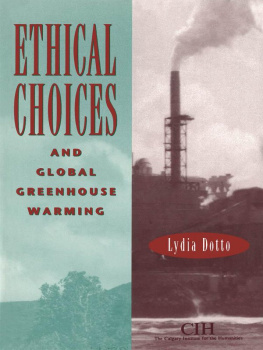
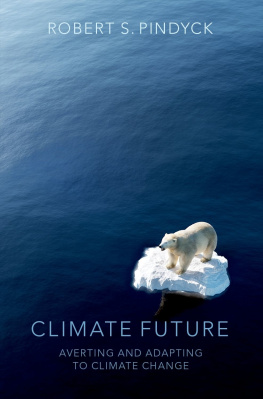

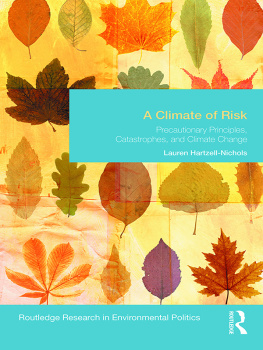
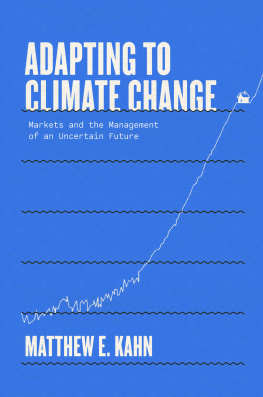
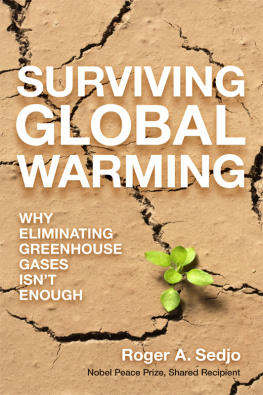
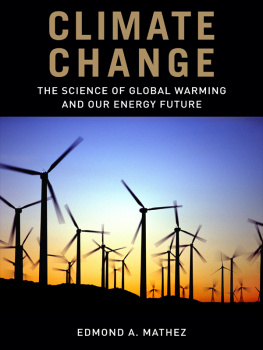
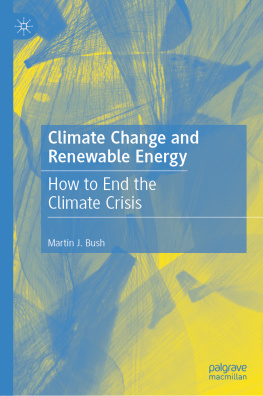
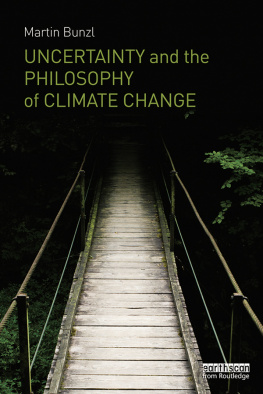


 Global warming is occurring now and it will intensify.
Global warming is occurring now and it will intensify.